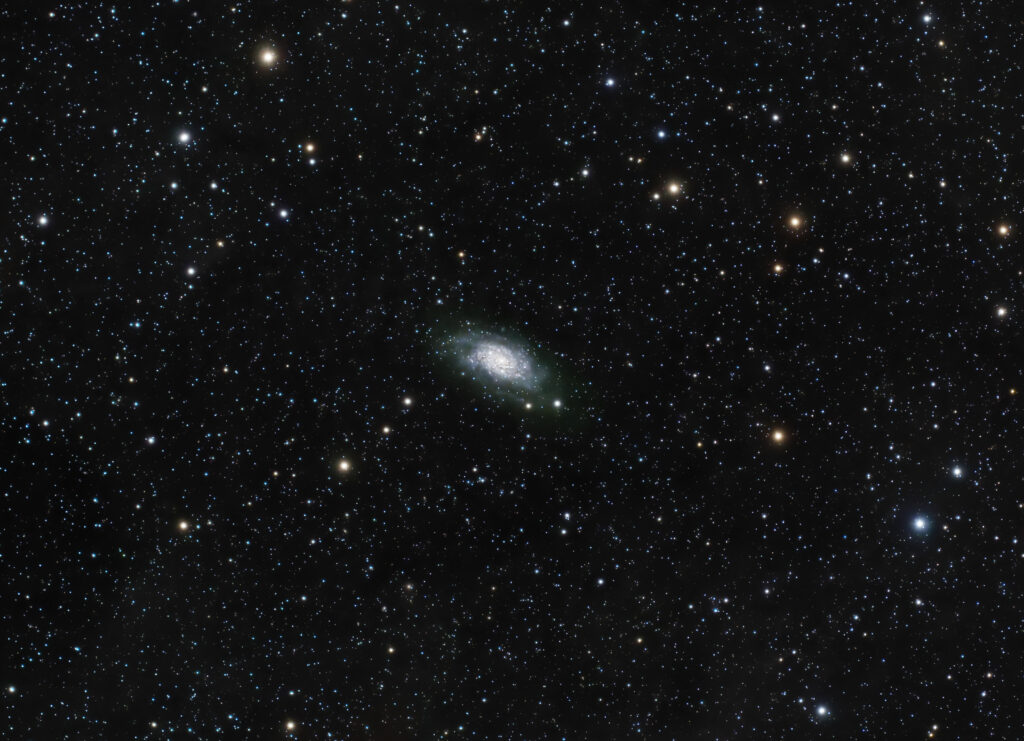NGC3521 in LRGB
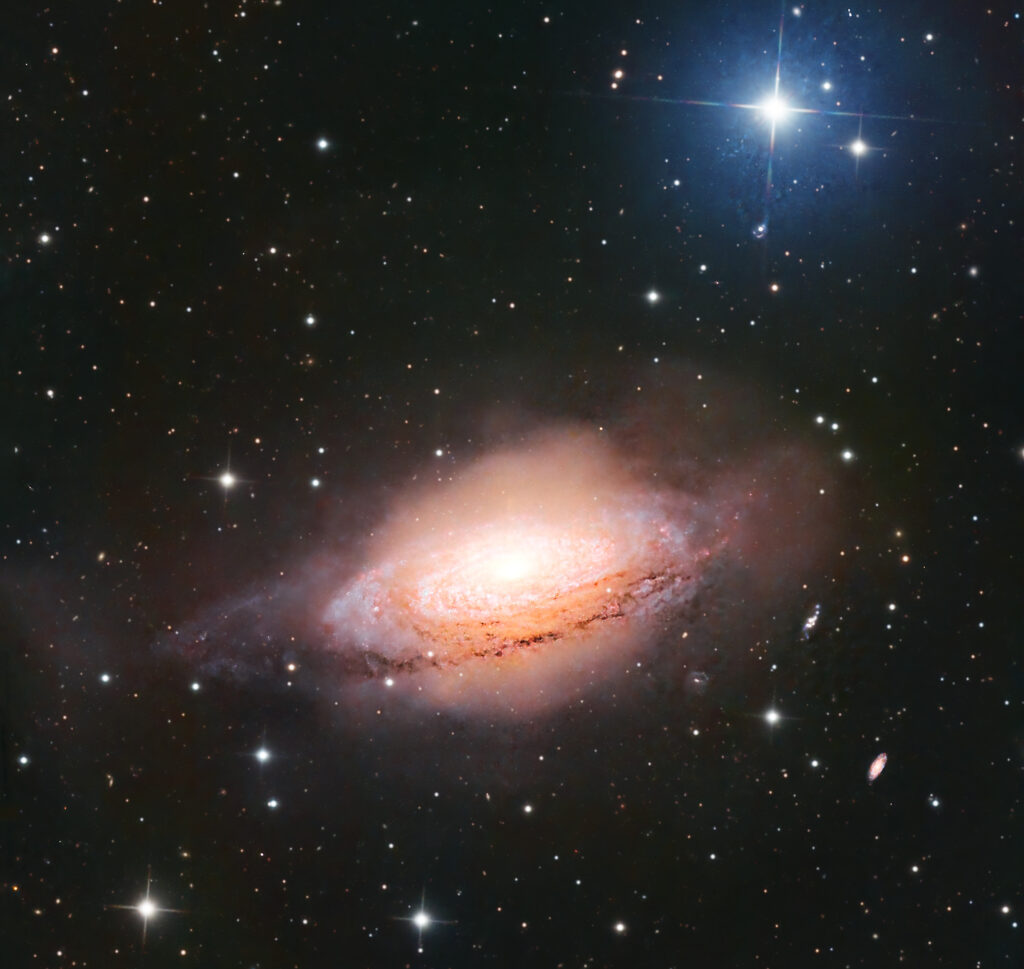
NGC3521 Galaxy in LRGB 300 seconds subframes, Planewave CDK24 and QHY 600M Pro CMOS at -10C, from Rio Hurtado Valley observatory in Chile, Telescopelive Network.
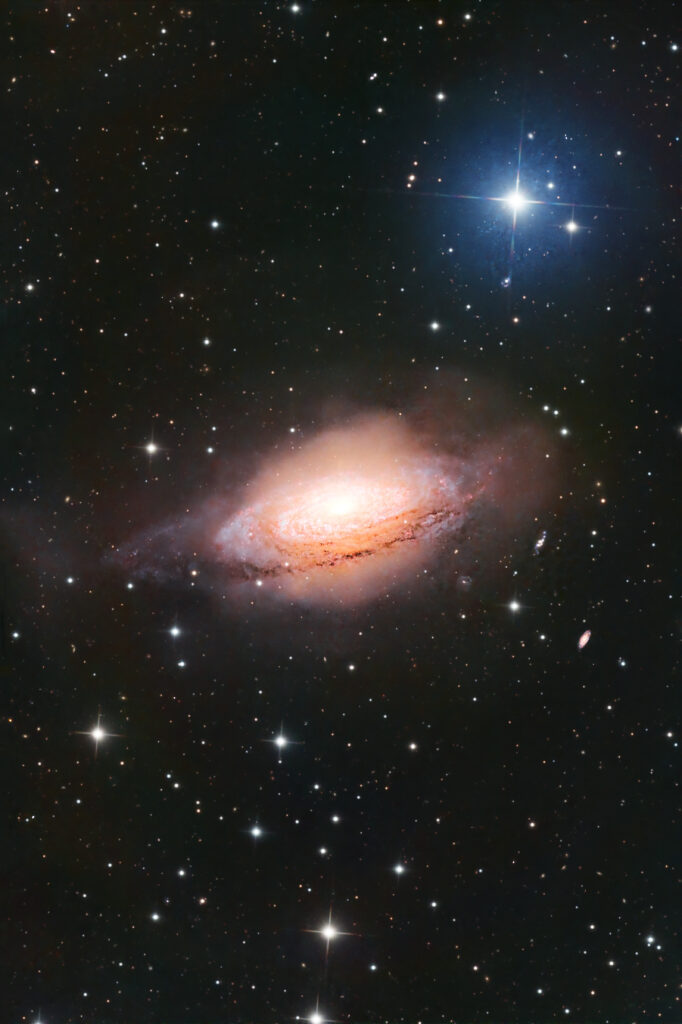
Astrobin: https://www.astrobin.com/hvt4xr/B/

NGC3521 Galaxy in LRGB 300 seconds subframes, Planewave CDK24 and QHY 600M Pro CMOS at -10C, from Rio Hurtado Valley observatory in Chile, Telescopelive Network.

Astrobin: https://www.astrobin.com/hvt4xr/B/
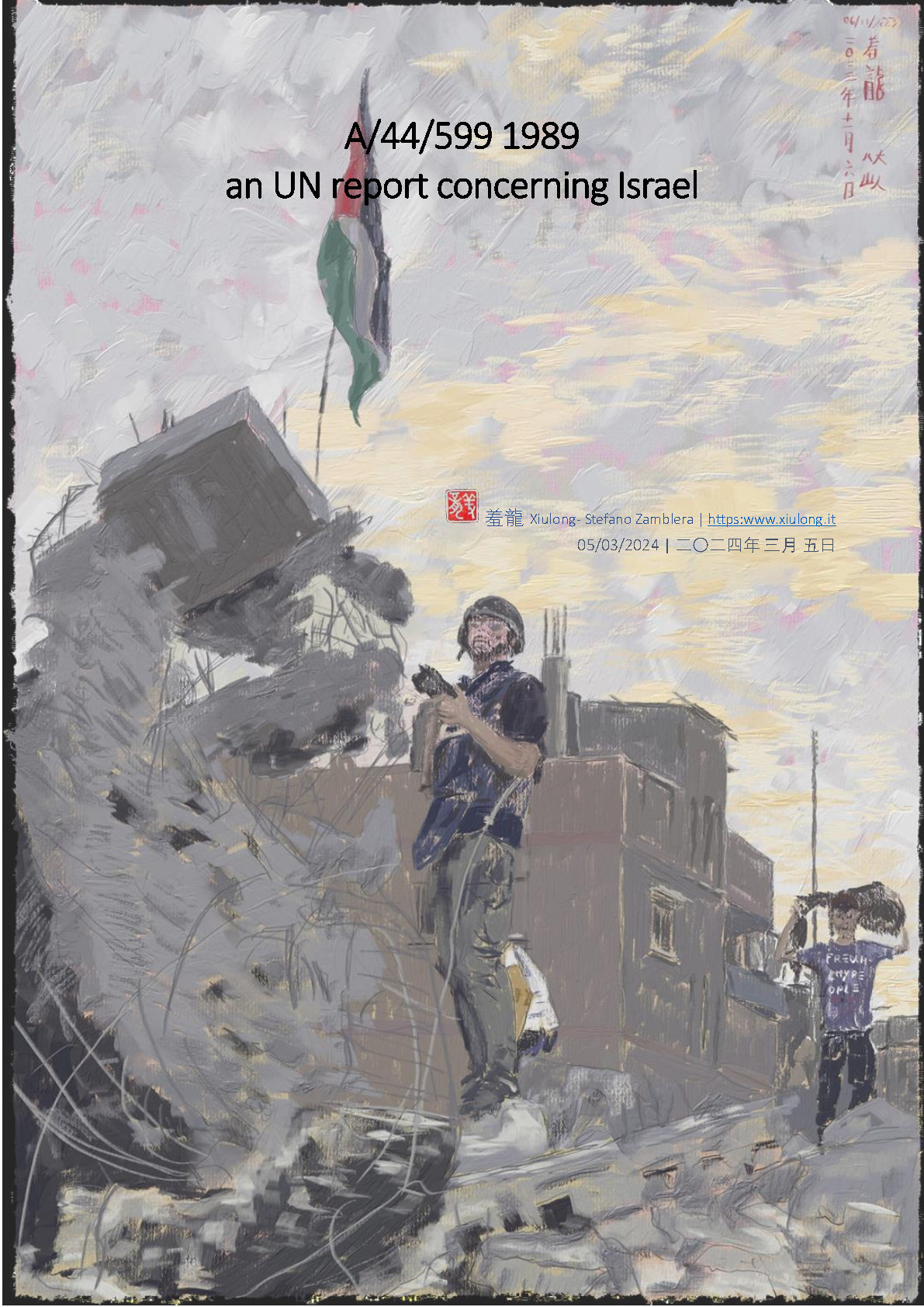
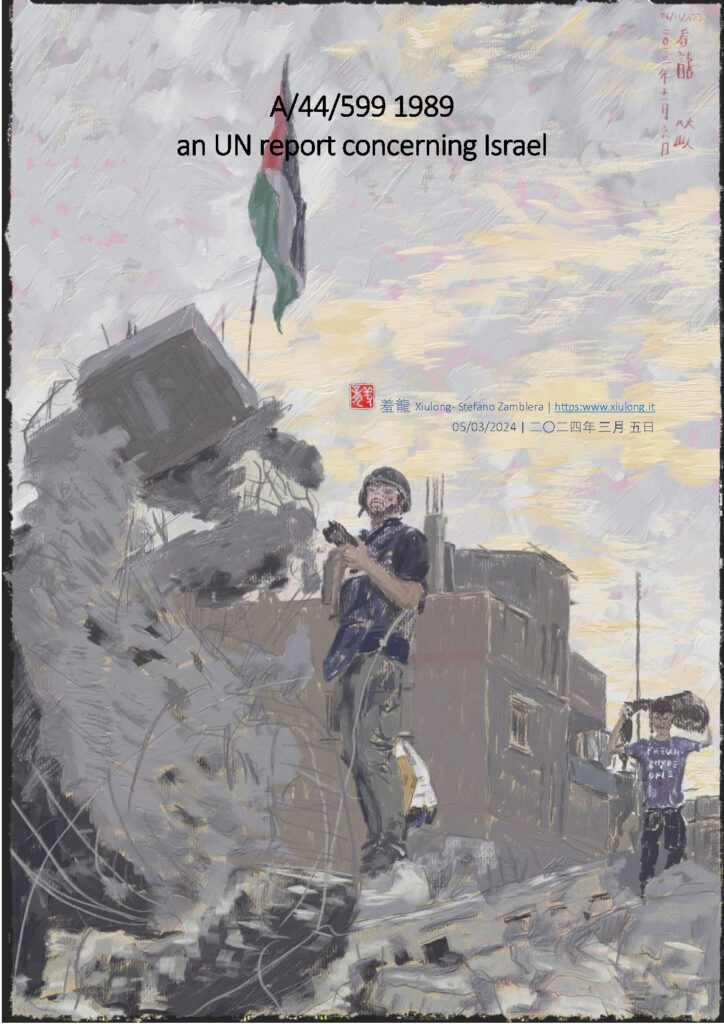
https://www.academia.edu/115813841/A_44_599_1989_an_UN_report_concerning_Israel
05/03/2024 | 二〇二四年 三月 五日
This introduction to frame and contextualize report A/44/599, here presented as typical entry record of an Annotated Chronology anthology of UN Resolutions and Reports Concerning Israel, formatted with the following field:
Within UN text corpus, reports are among the most common documents implemented by Organization’s bodies, such as committees, commissions, boards, councils and conferences, redacted in order to referring on their work. The one hereby presented belongs to the UN Secretary-General on the work of the Special Committee to Investigate Israeli Practices Affecting the Human Rights of the Population of the Occupied Territories, and was published on 12th October 1989.
Data and testimonials recorded and witnessed by this document cover a period between 26 August 1988, the date of the adoption of the twentieth report of the Special Committee, and 25 August 1989, and it contains detailed oral and written testimonies on incidents linked with uprising of the Palestinian population against Israeli occupation.
It consists in a list of evidences and depositions focused about condition for administration of justice, treatment of civilians affected by harassment and physical ill-treatment, collective punishment, homicides, houses demolitions and sealings, expulsions, economic and social abuses, measures affecting fundamental freedom of movement, religion, of expression, of association, of education, with evident double standard among Israeli citizens and Palestinians in justice administration and treatment of detainees.
About homicides, reader is informed of 215 cases exposed in a scheme with nominatives, ages (when available) and synthetic description of events took to the victim’s death: for an arch of time between 1st April and 24th August 1989, c’est à dire 215 causalities in 146 days. Victim’s age analysis evinced 66 under 18 years old minors, with one 3 years old girl killed by israelian troops firing at stone throwing crowds.
Demolitions and sealing of homes as collective punishment is witnessed in this report, and these attestations result according to Btselem general report description[i], with a context, since the beginning of the al-Aqsa intifada, of IDF demolishing 628 housing units, which were home to 3983 persons left homeless, as a punitive measure because of the acts of 333 Palestinians: on average, twelve innocent people lost their home for every person suspected of participation in attacks against Israel. Almost half of the homes demolished, 295 or 47%, were never home to anyone suspected of involvement in attacks against Israelis, but as a result to these demolitions 1286 persons lost their homes even though according to Israeli officials they should not have been punished.
Deepening the topic, the declared purpose of the punitive house demolitions is to deter potential attackers by harming the relatives of Palestinians suspected of carrying out attacks against Israel.
Over the last four years Israel has demolished 4100 Palestinian homes in the occupied territories: about 60% of the demolitions were carried out in the framework of what Israel calls “clearing operations”. 25% were destroyed because Israel claims they were built without permit. The remaining 15% were demolished as a means of punishment to the families and neighbors of Palestinians suspected of involvement in carrying out attacks against Israelis.
Israel has demolished Palestinian houses as a punitive measure since the beginning of the occupation in 1967, with an extension of demolishing actions which varied year in year.
According to Martin Carroll[ii],
“ although there may be occurrences in which such action may satisfy peculiar requirements, there can be little doubt that in the majority of cases demolitions are in violation of international law, in particular it is in violations of Fourth Geneva Convention article 33 which clearly prohibits the punishment of innocent people for the acts of others, and article 53which forbids to demolish a house belonging to a protected person in a n occupied territory merely because the owner or tenant is suspected of rendering assistance to saboteurs[iii], and it’s since 1971 that U.N. General Assembly Resolution 2851 (XXXVI), commended the Special Committee’s report and “[s]trongly call[ed] upon Israel to rescind forthwith all measures and to desist from all policies and practices as … [t]he destruction and demolition of villages quarters and houses.[iv] ”
This is the context where reader should frame records report within A/44/599.
Other addictions and commentaries are reported in conclusive annotations.
***
[i] Cfr. Lein Yehezkel, 2004 “Through No Fault of Their own. Punitive House Demolitions during the al-Aqsa Intifada” https://www.btselem.org/download/200411_punitive_house_demolitions_eng.pdf [23/02/2024]
[ii] Carrol B. Martin, 1990 “The Israeli Demolition of Palestinian Houses in the Occupied Territories: an Analysis of its legality in International Law”Michigan Journal of Internationalk Law, Vol.11:1195 – 1217: cfr. https://repository.law.umich.edu/mjil/vol11/iss4/4 [23/02/2024]
[iii] Distein, 1978 “The international Law of Belligerant Occupation and Human Rights” 8, 1978 Isr. Y.B. Hum. Rts. 104, 128.
[iv] Cfr. Report of the Special Committee to Investigate Israeli Practices Affecting the Human Rights of the Population of the Occupied Territories, U.N. Doc. A/8389 (1971), at 44-46. https://digitallibrary.un.org/record/1293360 [23/02/2024]
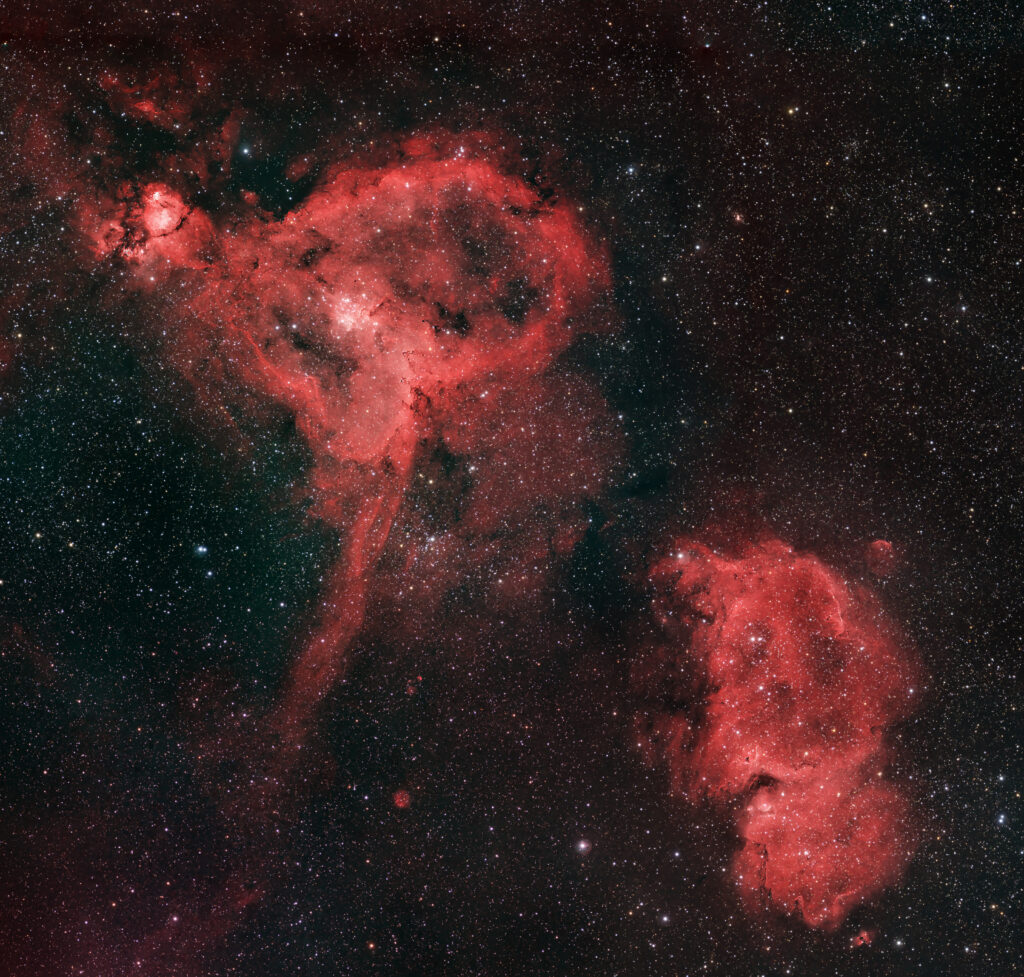
Mosaic made by 9 panels, with starless master in narrowband, HOO palette, and stars integration in RGB.
Narrowband subframes of 180″, 300″ and 600″, RGB subframes at 60″ exposure.
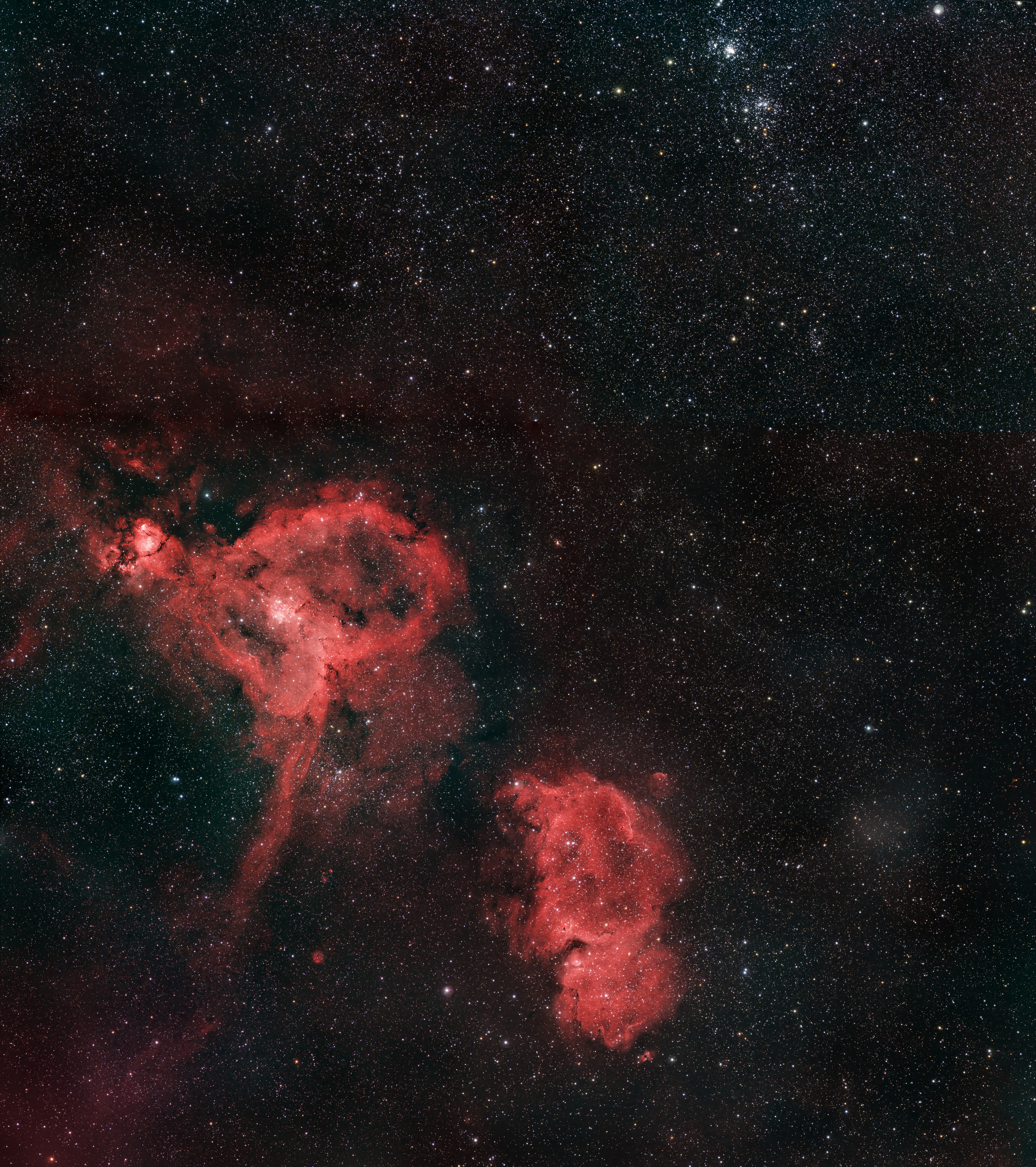
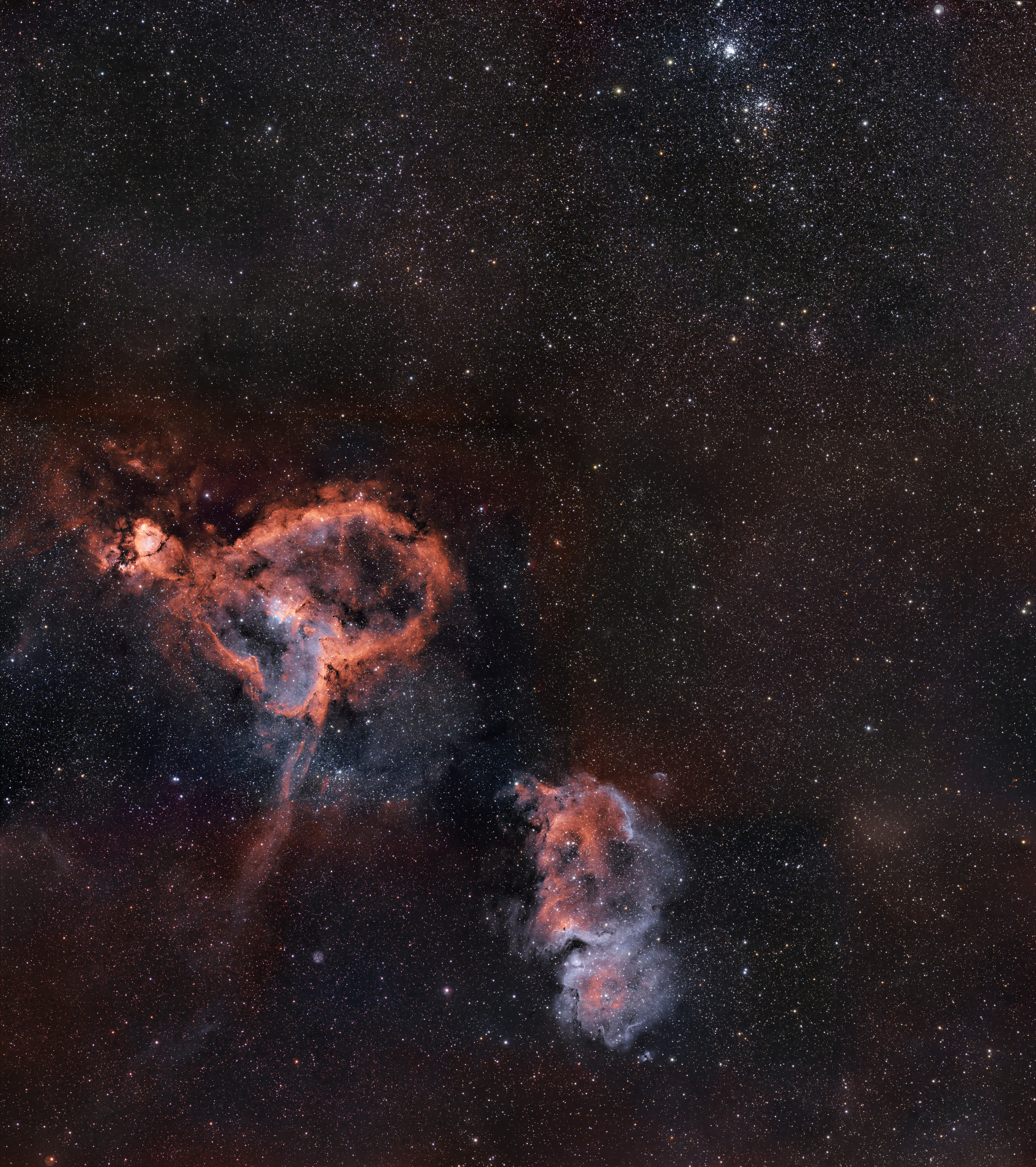
Mosaic made by 9 panels, with starless master in narrowband, SHO palette, and stars integration in RGB.
Narrowband subframes of 180″, 300″ and 600″, RGB subframes at 60″ exposure.
Astrobin:
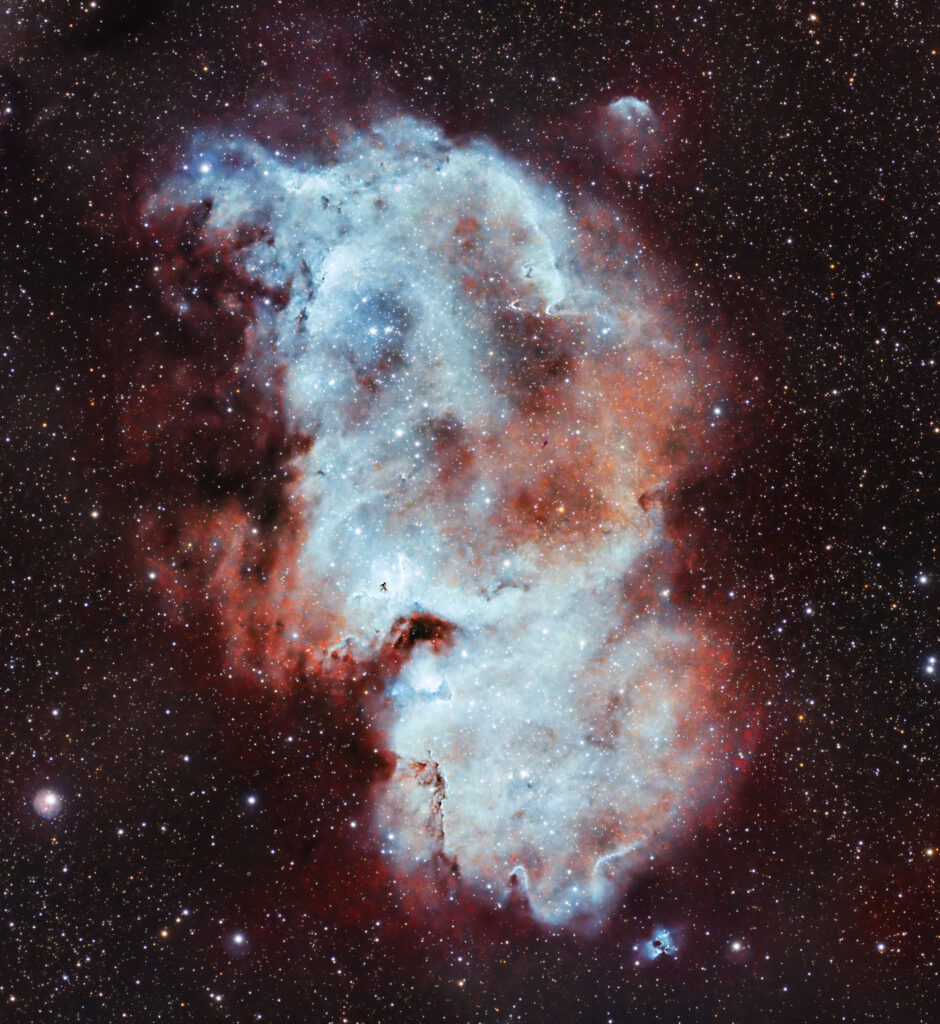
IC1848 in narrowband, with stars in RGB. SHO palette and cropped field to best focusing about Soul Nebula IC1848.
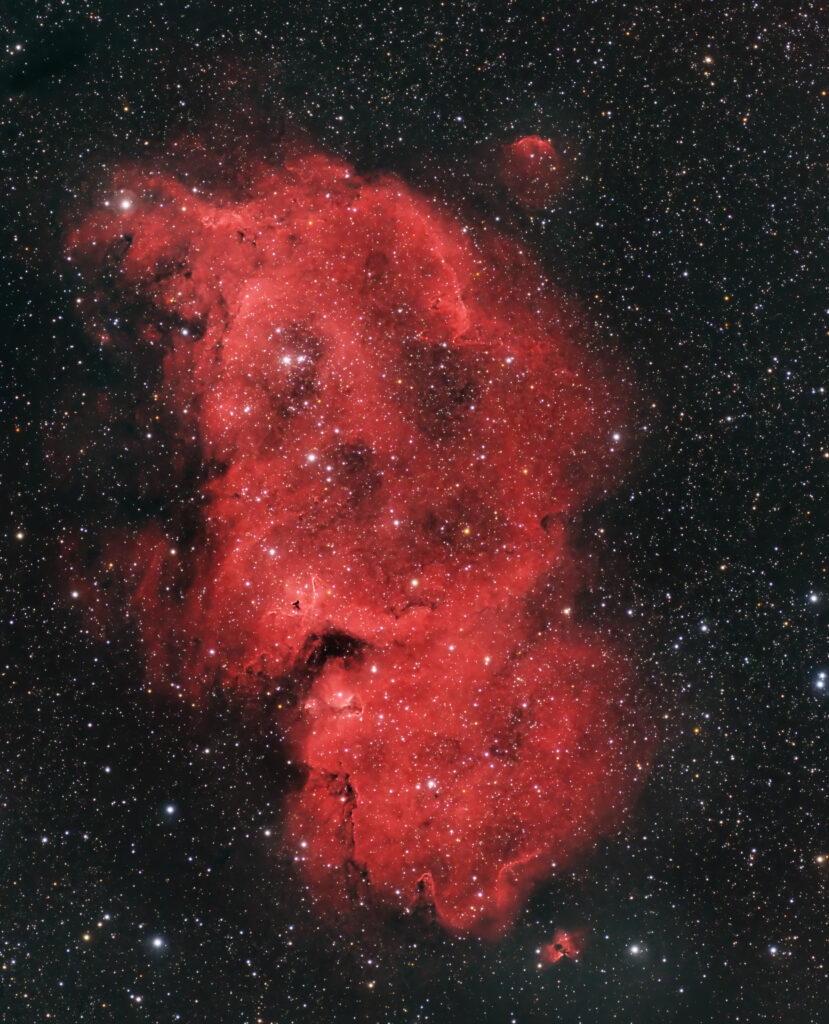
HOO palette and RGB stars
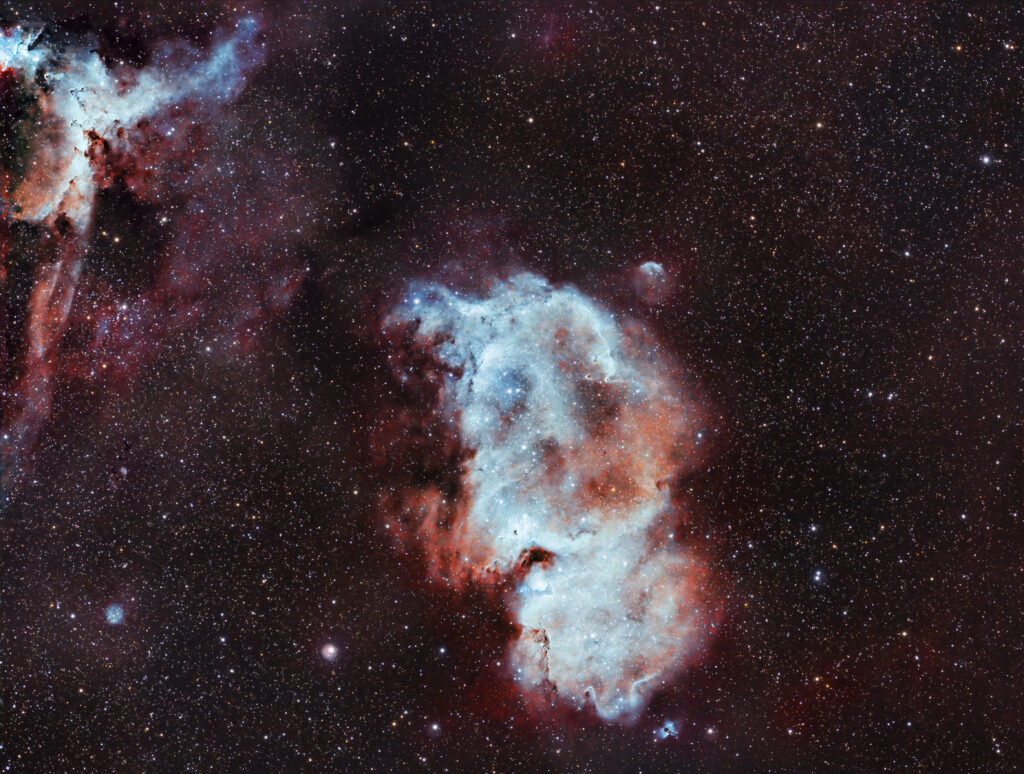
Wider field from original integration, with part of IC1805 on the top left
Astrobin:
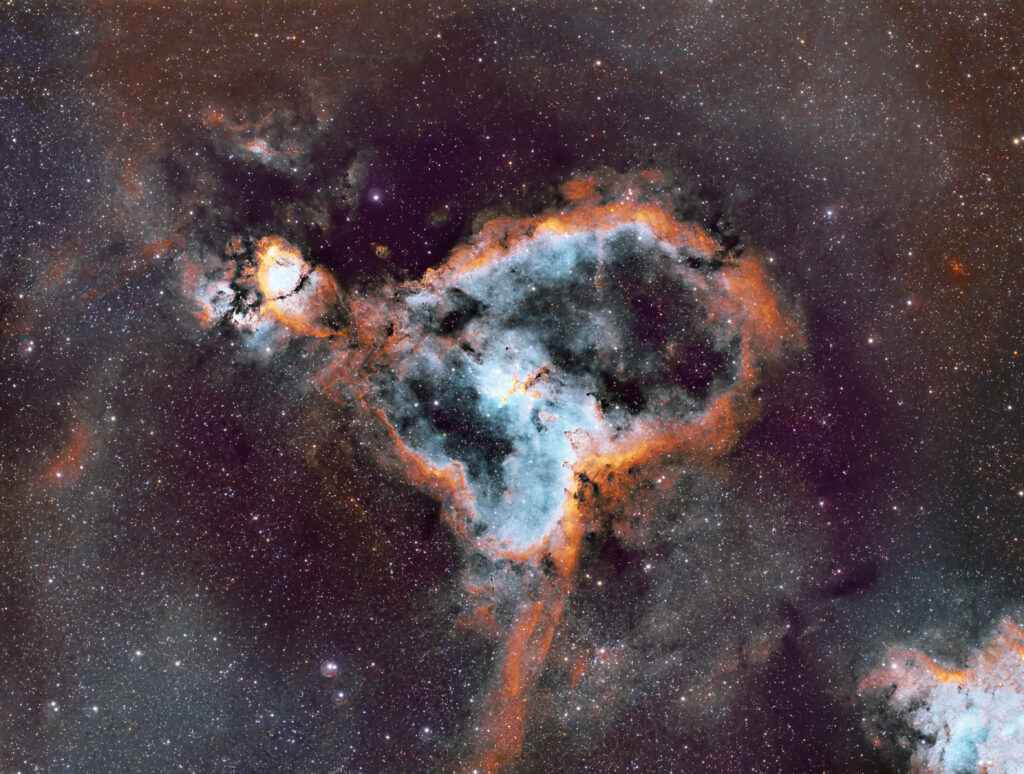
New workflow focused about IC1805 with narrowband and RGB data addiction.
AFter PixInSight normal workflow, parallel for SHO, HOO and RGB integration, I reached the point of star separation from nebuloisty. Starless SHO and HOO files was developed with color masks and curves transofrmation in PixInSight, thus finally cleaned and polished by NoiseXTerminator and BlurXTerminator.
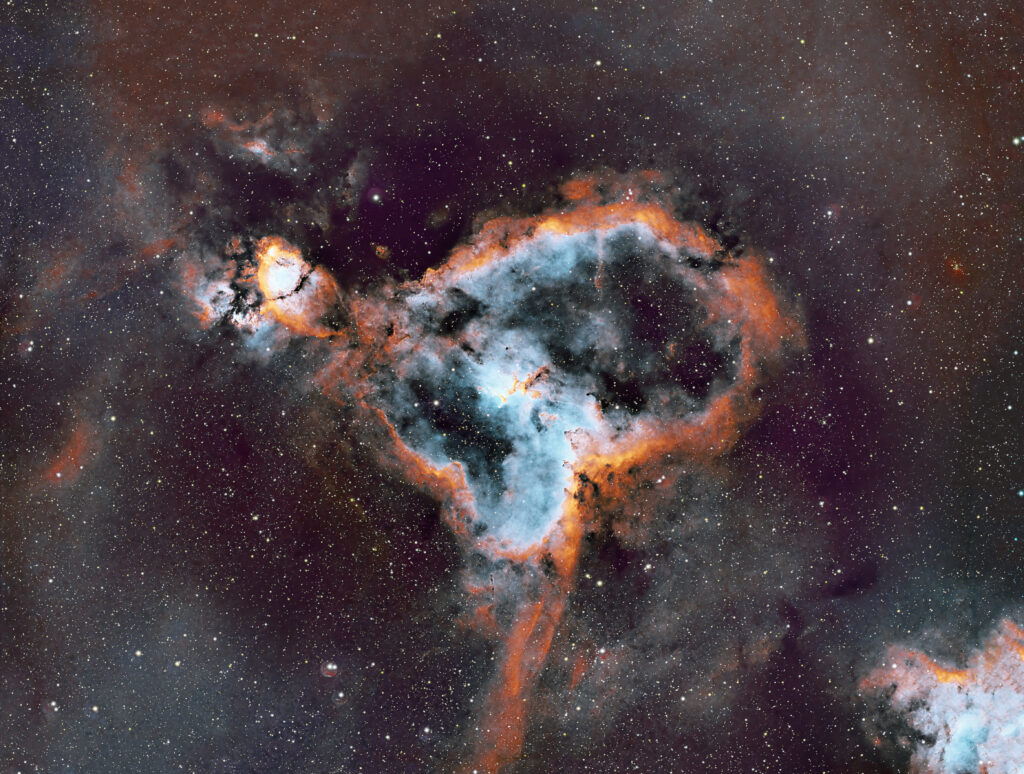
SHO, starless and stars
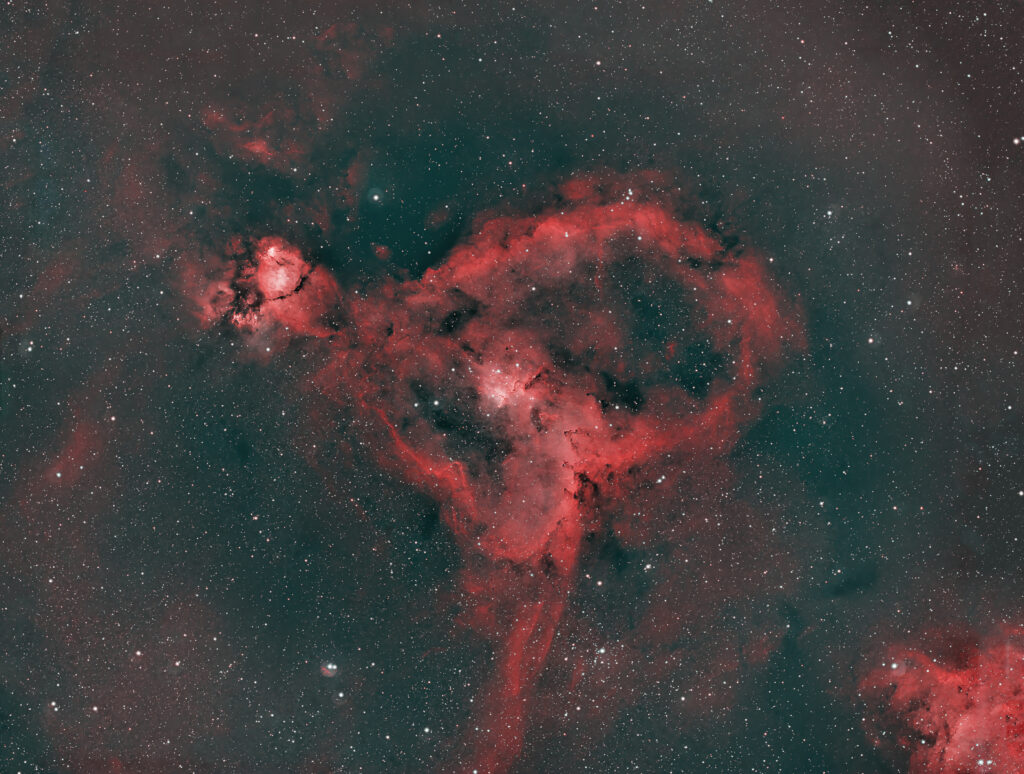
HOO palette, starless and stars
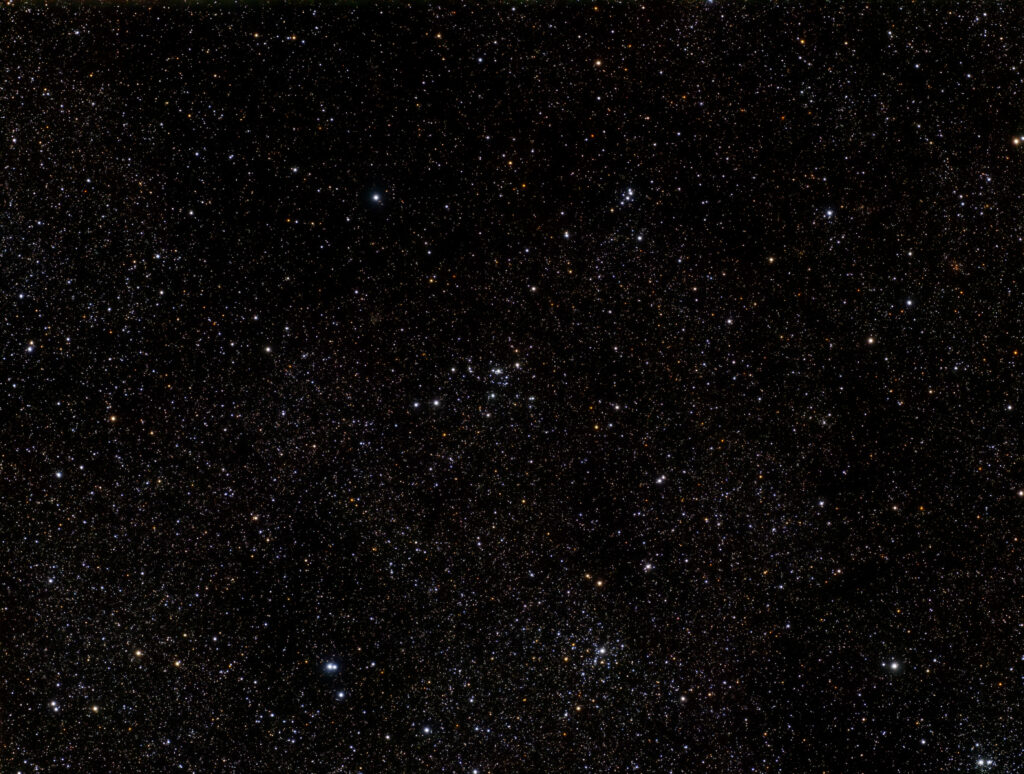
RGB stars master was simply saved as .tiff.
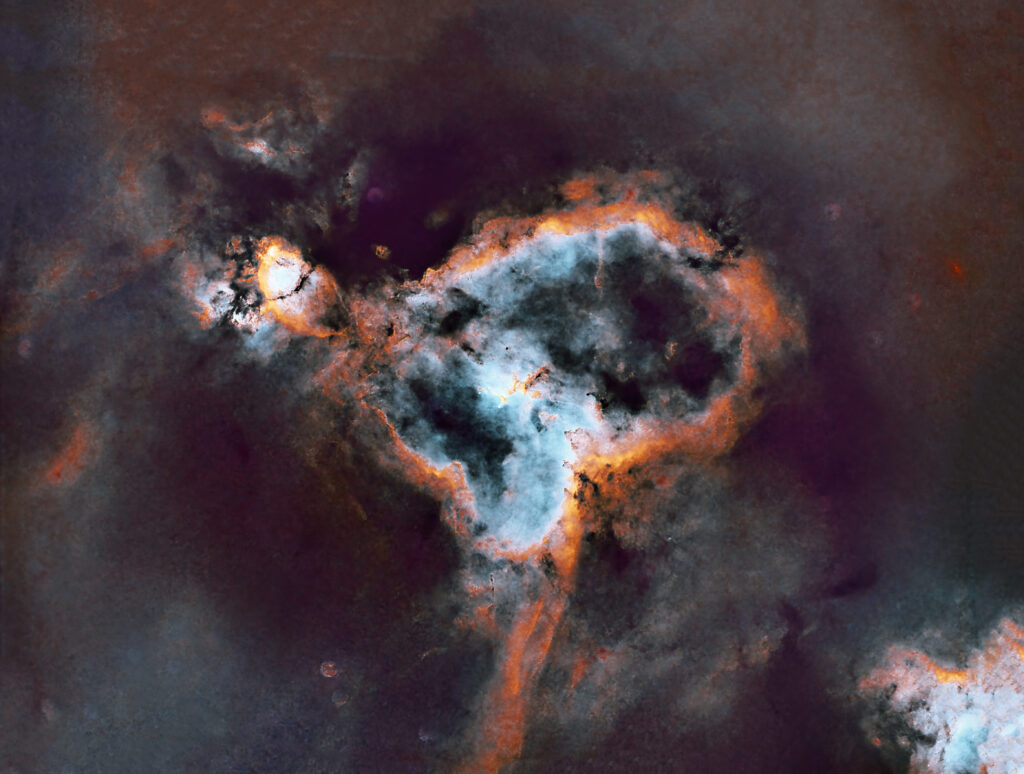
SHO starless after adjustements and pixel fixing
Starless and stars composition made in Photoshop, after dedicated adjustements, with screen stars layer blending over starless SHO nebula.
Astrobin:
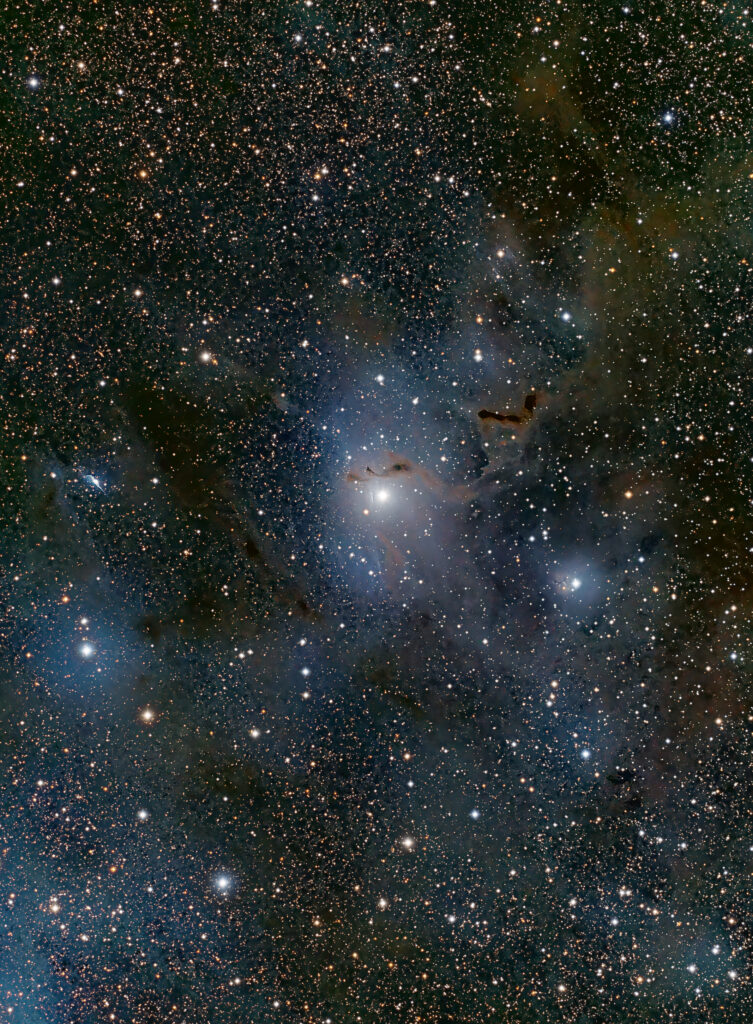
LDN1355 Helping Hand Nebula in LRGB, 600 sec. subframes at -25C by Takahashi FSQ-106ED with CCD Proline FLI PL16083, from Spanish IC Astronomy Observatory, Telescopelive network.
After cosmetic correction of calibrated subframes I realized 2 LRGB integration by PixInSight: the first one by Process > ColorSpaces > LRGB combination, and the second, after integrating RGB masters, by Script > Utilities > LinLRGB operating over L master and RGB just created one.
I thus proceed with a normal post production workflow for each integration: LRGB, LinLRGB, RGB and L master: bg removal, platesolving, Spectrophotometric color calibration, Starmask, Deconvolution manual made, with Bg-mask and PSF obtained by EZdeconvolution, first denoising by EZdenoise, Stretching, 1st Dark Structure Enhancing, Starless and Stars version for each one, 2nd Dark Structures Enhancing just to starless, Color Masking and curves transformation (starless), final denosing and sharpening by NoiseXTerminator and BlurXTerminator (still just starless), .TIFF saving.
I finally rebuilt stars + starless image in Photoshop, applying adjustements to starless and star as separated layers group, melted in Lighten blending mode.
As I wasn’t satisfied nor by LRGB,
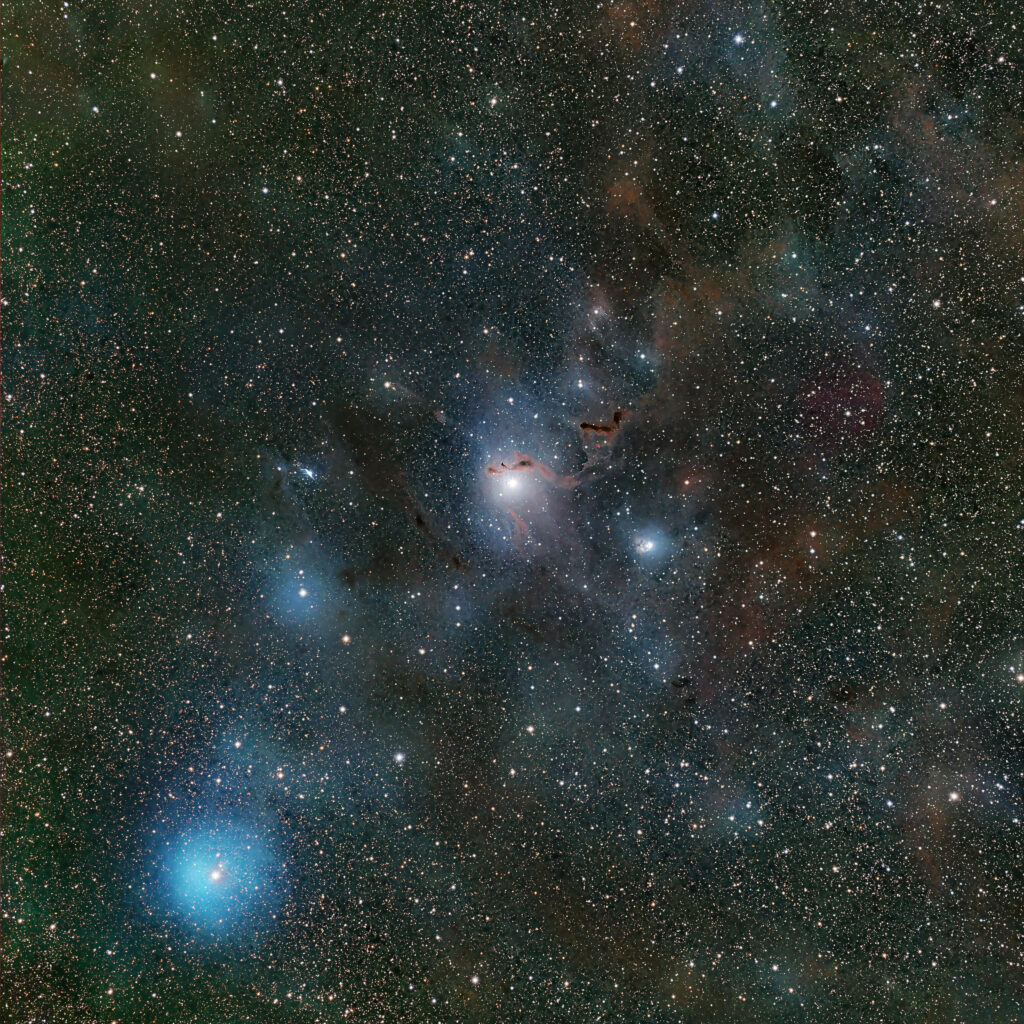
neither by LinLRGB results,
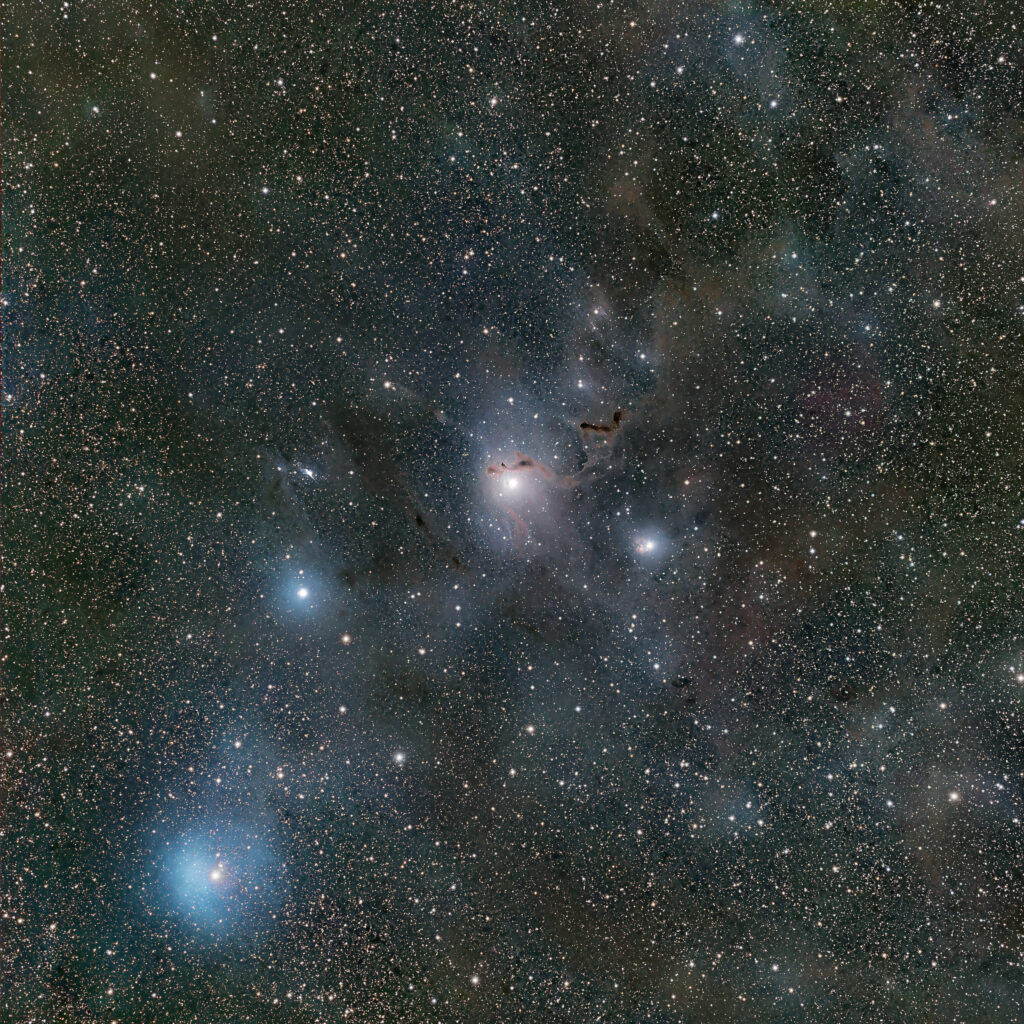
expecially because of Luminance and contrast, I thus move for another Photoshop workflow, with RGB starless and RGB stars, respectively associated to L starless and L stars luminance layer group, in luminosity blending mode, with dedicated adjustements and opacities setting.
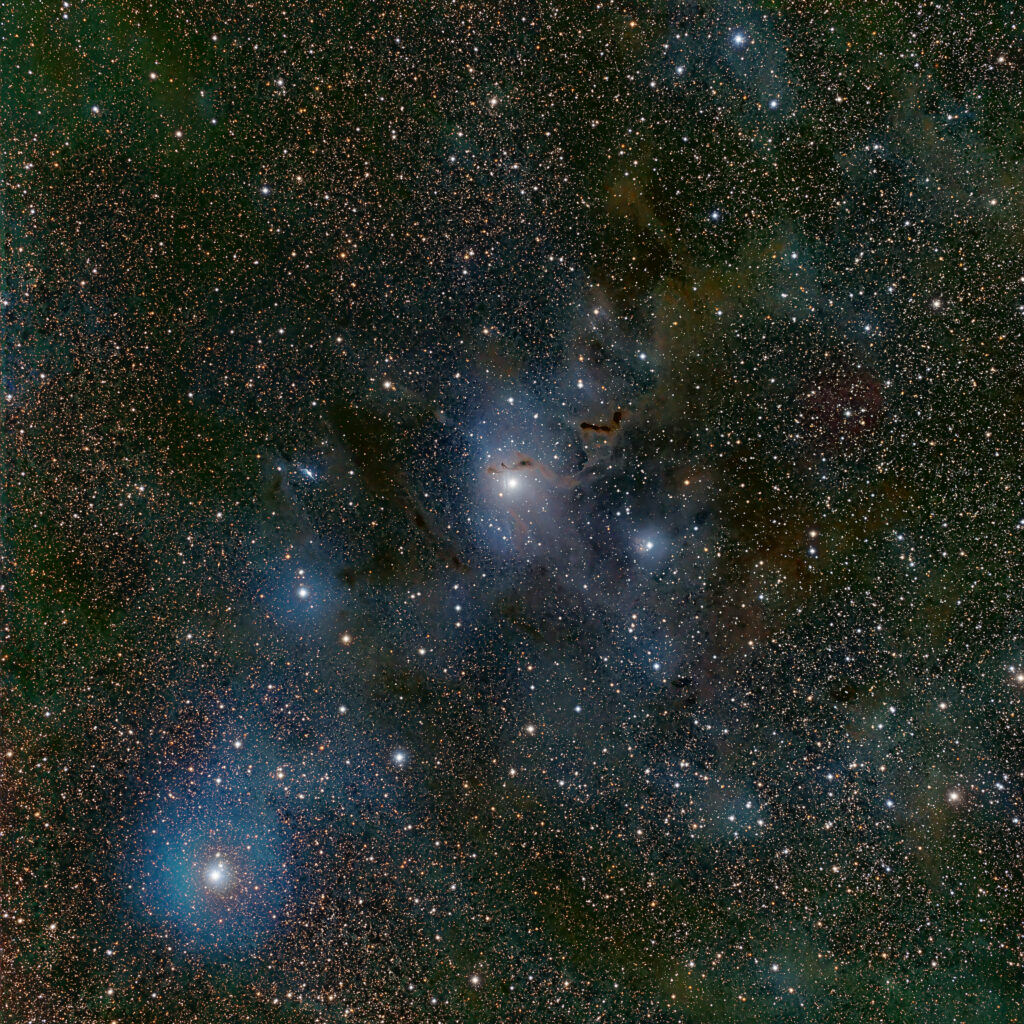
I found this final postproduction better ther previous results, and thus move to a crop version to better focusing about LDN1355.
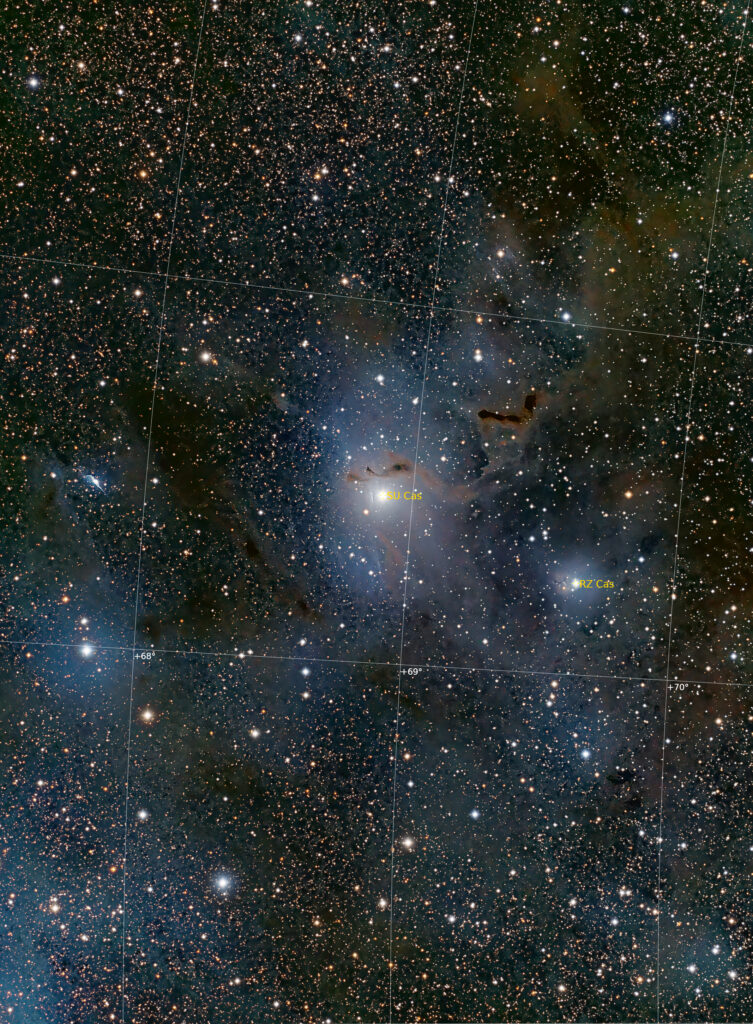
Astrobin: https://www.astrobin.com/qb5b5g/D/
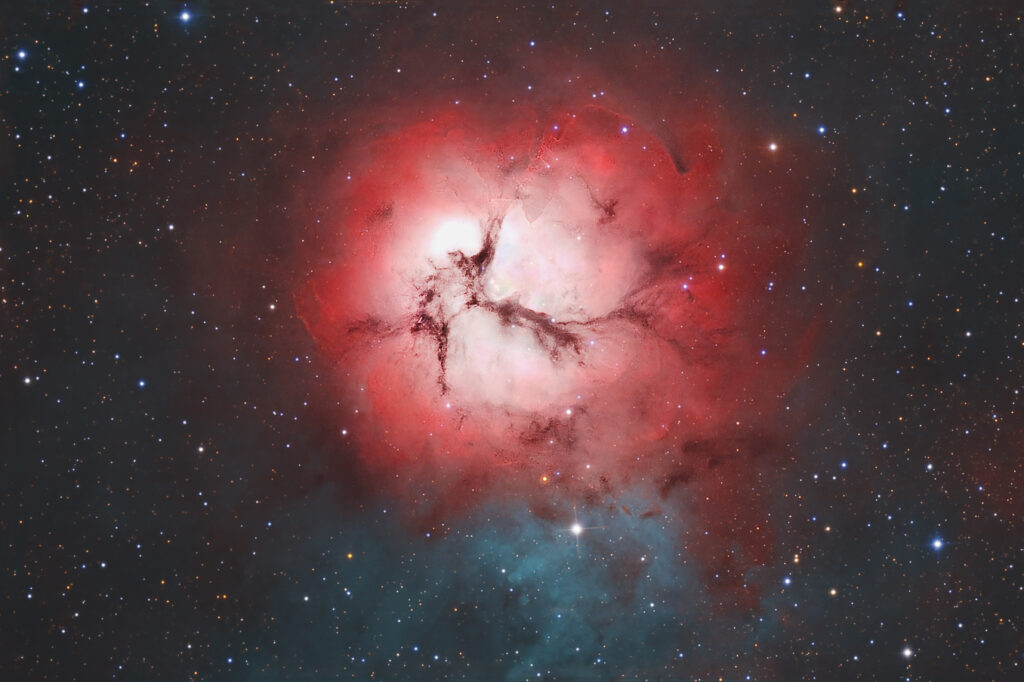
Trifid Nebula in HOO palette. Single session of 300sec. subframes at -25 C., Planewave CDK24 and QHY 600M Pro, from Rio Hurtado Valley, Chile – Telescopelive network.
Astrobin: https://www.astrobin.com/q0yn6t/
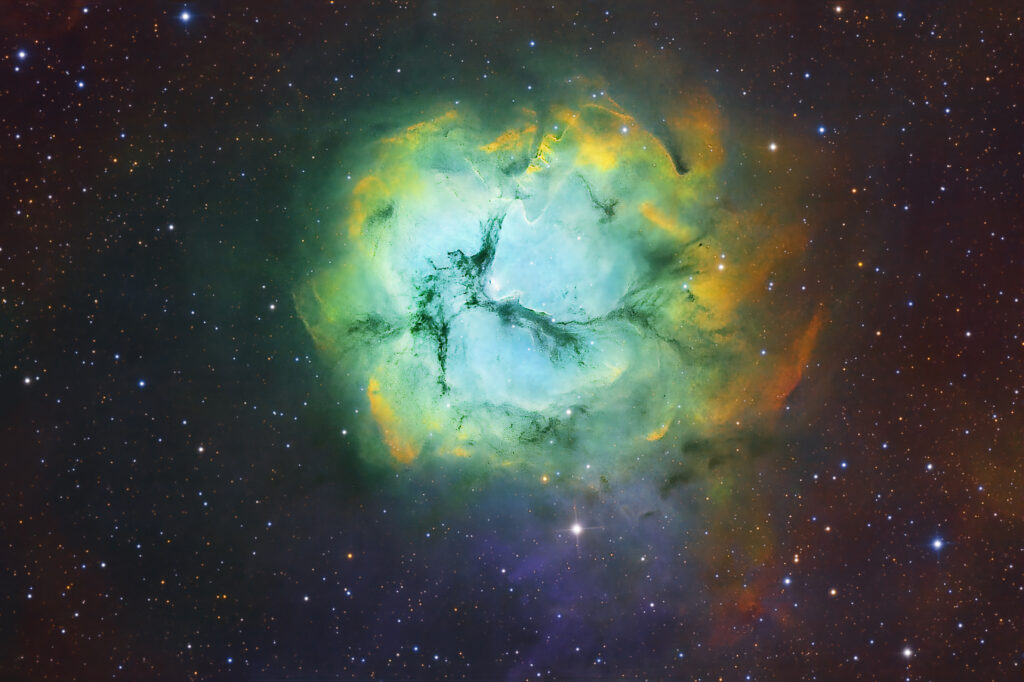
Trifid Nebula in SHO, 300sec. subframes at -25 C., Planewave CDK24 and QHY 600M Pro, from Rio Hurtado Valley, Chile – Telescopelive network.
Astrobin: https://www.astrobin.com/3em4g7/
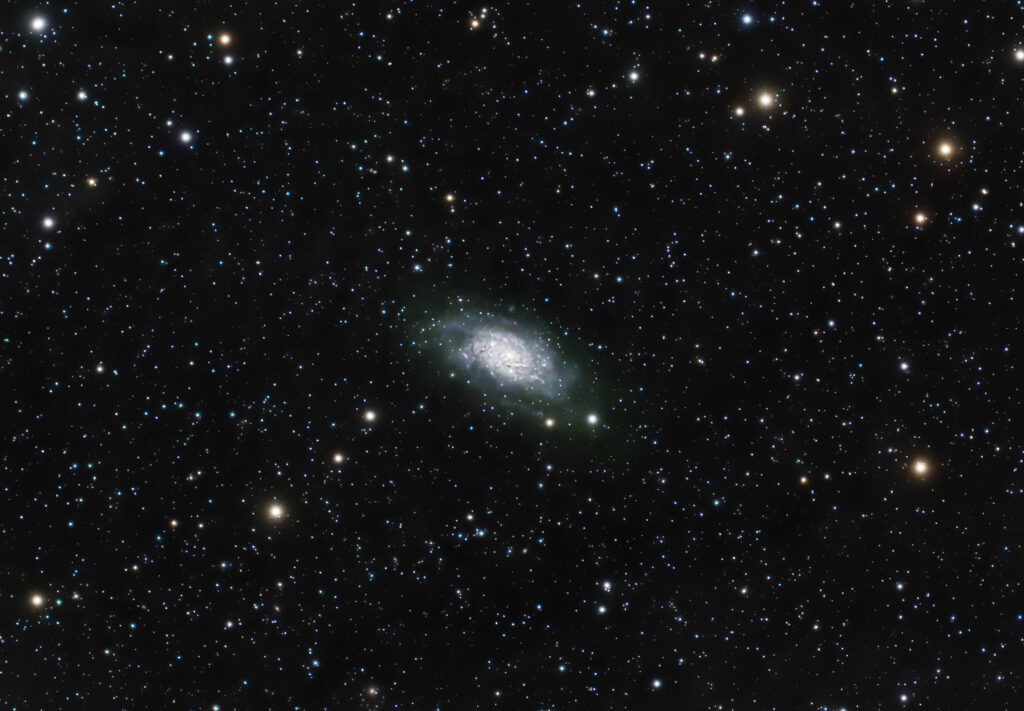
NGC2403 Galaxy in RGB. William Optics Redcat 51 and ASI1600mm Pro, 60 seconds LRGB subframes taken at -20C between 10/09/2022 and 13/02/2023, suburban 6 Bortle scale sky (Livorno – IT).
Final image is the 2nd cropped version from the wider range integration
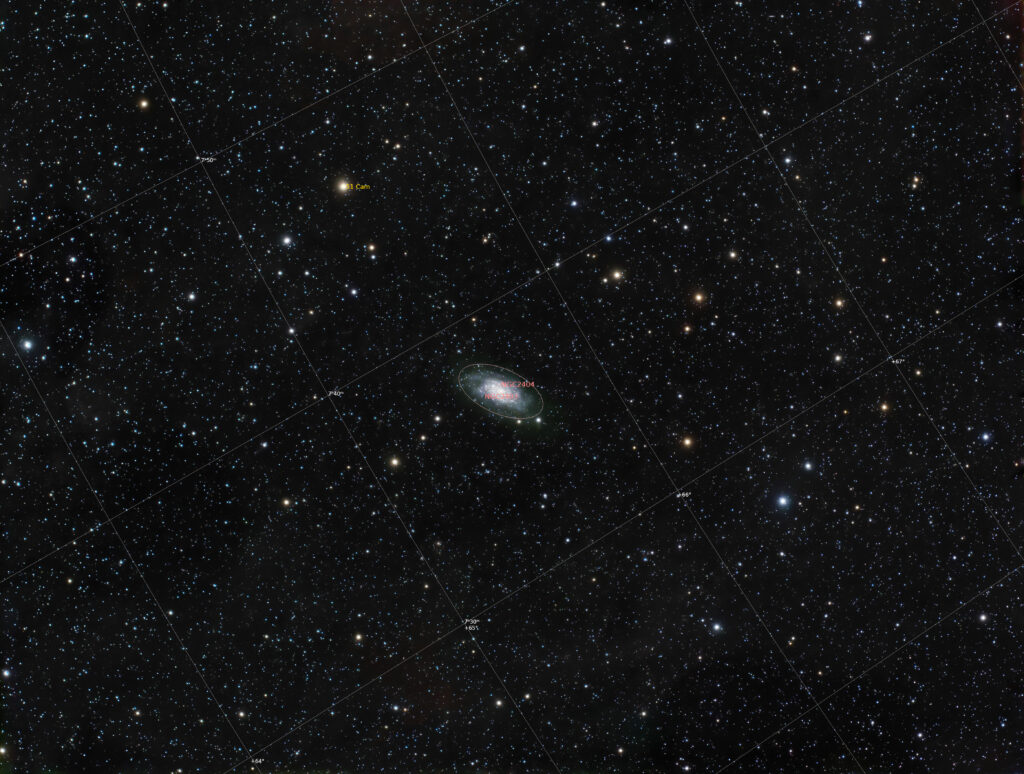
Less incisive cropping as first attempt to get more focusing about NGC2403
